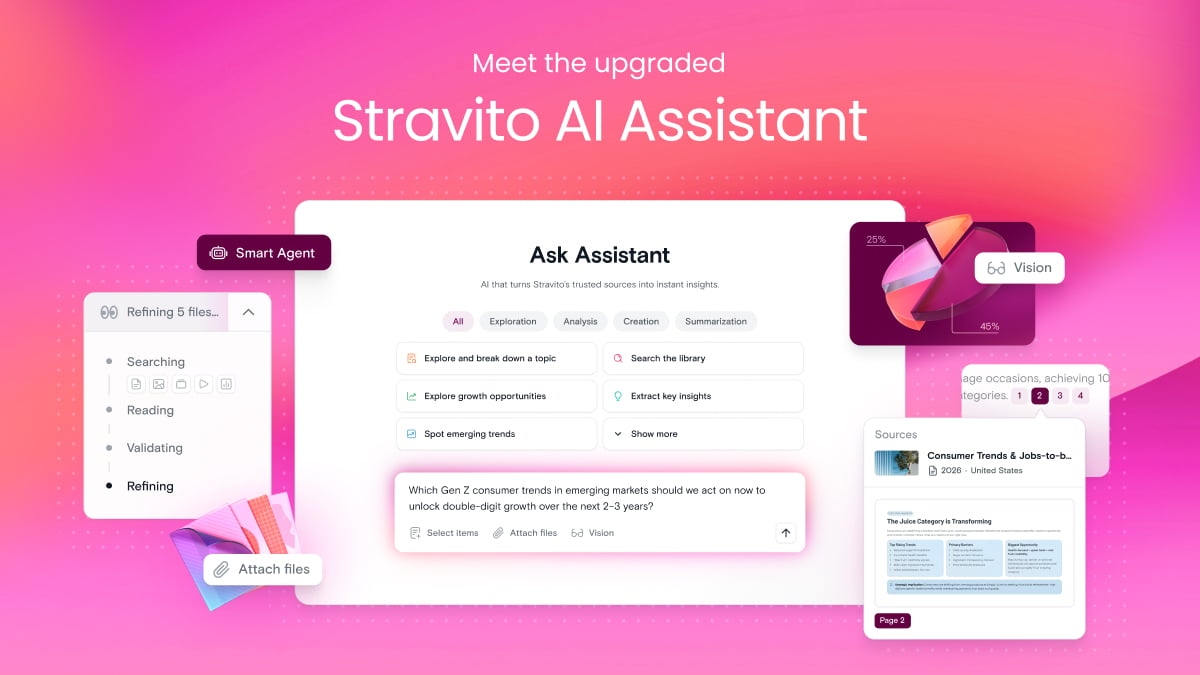The role of UX research is constantly evolving. Far from being just data collectors and deliverers, many UX researchers are essential connectors of insights driving strategic decisions within businesses. However, despite this, it can still be a challenge to prove the huge value of UX research within organizations.
This transformation was the central theme of our recent webinar, Making UX Research Matter to the Business, with industry experts Dr Ari Zelmanow, Nikki Anderson, and Emily DiLeo. In this article, we’ll explore the key takeaways from the discussion along with actionable steps to prove and redefine the value of UX research in today’s modern organizations.
Understand stakeholder needs
One of the most pressing challenges for UX researchers is demonstrating the tangible value of their work to stakeholders. As our panelists emphasized, the key lies in alignment: understanding what stakeholders need to achieve and showing how research can directly support those objectives.
Stakeholders are often focused on measurable outcomes, such as:
- Growth
- Risk mitigation
- Adaptability
- Speed to market
By framing insights within these business priorities, researchers can redefine their work from a supportive function to an essential, strategic asset.
Rather than presenting findings as standalone data points, researchers should tie them to specific business outcomes. For example, they should dig deep and answer, “How will these insights help the company grow, reduce risk, or adapt to market changes?” This approach increases the perceived value of research and also develops deeper stakeholder engagement.
Move beyond static assets
A recurring topic during the webinar was the need to shift from creating static deliverables, such as personas and journey maps, to generating dynamic, actionable assets. While these traditional tools certainly have their place in UX research, they’re often too static to drive real change.
Instead, consider how research deliverables can be made more adaptive and relevant. For example, use AI to create living documents that evolve as new data is collected so insights remain actionable and align with shifting business needs.
Our panelists also highlighted the importance of reframing UX assets as business assets. By presenting tools like journey maps and personas as strategic resources that inform business decisions, researchers can bridge the gap between UX and broader organisational goals.
Use AI to transform research repositories
AI is revolutionizing the way research repositories function. By automating tasks like tagging, searching, and summarizing, AI tools make it easier for teams to access and effectively use insights.
However, the real value of AI lies in how the tools are used. Rather than letting tools dictate workflows, researchers should identify their needs first and select the right software to address those requirements. For example, specific AI-powered platforms can improve knowledge sharing by creating intuitive, searchable repositories that provide easy access to research.
The goal is to move from data collection to data connection, so insights aren’t just stored but actively accessible across the organisation, which leads us to our next section.
Collaborate with other teams
UX research is always connected to and influenced by other factors, including business goals, market trends, team dynamics, and user feedback. Collaboration with different teams within a business, such as marketing, customer experience (CX), and data analytics, is essential for maximising the impact of research.
Our webinar emphasized the importance of breaking down silos and creating shared knowledge platforms. By integrating research efforts across departments, organisations can ensure a cohesive approach to insights that supports strategic decision-making. This collaborative mindset also opens opportunities for researchers to influence strategy at a higher level.
Redefine the role of researchers
To truly make an impact, UX researchers must shift their mindset from being deliverable creators to strategic partners.
This involves:
- Proactive engagement: Anticipate stakeholder needs and align research initiatives with business priorities.
- A consultative approach: Act as advisors who connect stakeholders with the insights they need to make informed decisions.
- Strategic vision: Identify new opportunities, markets, or revenue streams based on research findings.
As Dr Ari Zelmanow succinctly put it, “We need to act more like consultants than delivery people.”
Practical tips to improve UX research
Our webinar summarised and concluded with some extra, actionable advice for UX researchers looking to enhance their impact within business:
- Understand stakeholder objectives: Build a stakeholder map to identify goals, challenges, and opportunities. Tailor research to directly support these areas.
- Adopt a knowledge-first approach: Invest in tools and processes that make insights accessible and actionable. AI-powered repositories can be invaluable here.
- Focus on outcomes: Frame research findings in terms of their impact on business growth, risk, adaptability, and speed.
- Promote collaboration: Partner with other departments to create a unified approach to insights and decision-making.
- Be adaptable: Embrace new technologies and methodologies to keep research relevant and impactful.
The future of UX research
By connecting insights to business value, UX researchers can cement their significant role as indispensable strategic partners. This transformation involves not just new tools and techniques but also a renewed focus on understanding and supporting stakeholder needs.
By rethinking how research is framed and shared, we can ensure it remains essential in strategic decision-making in the years to come.
Watch the full discussion
To explore these ideas further and learn more, we invite you to watch the full recording of our webinar and discover how leading experts are redefining the role of research and paving a path toward greater impact and influence.






